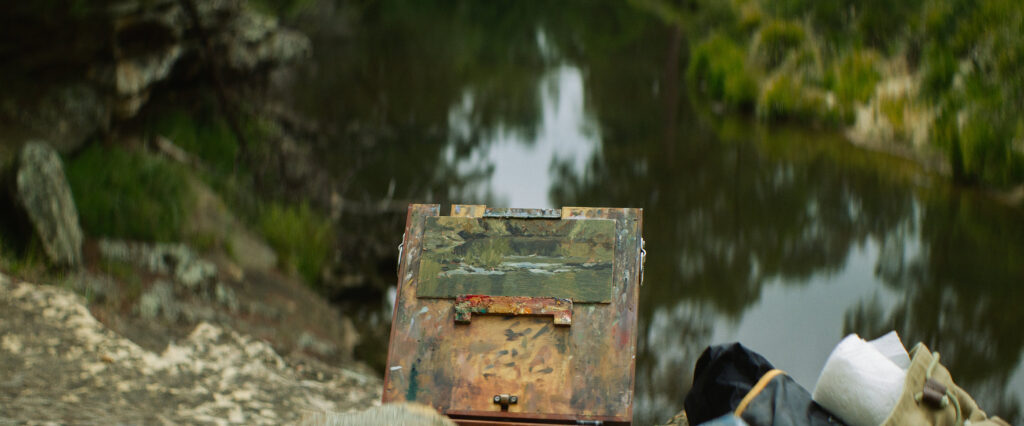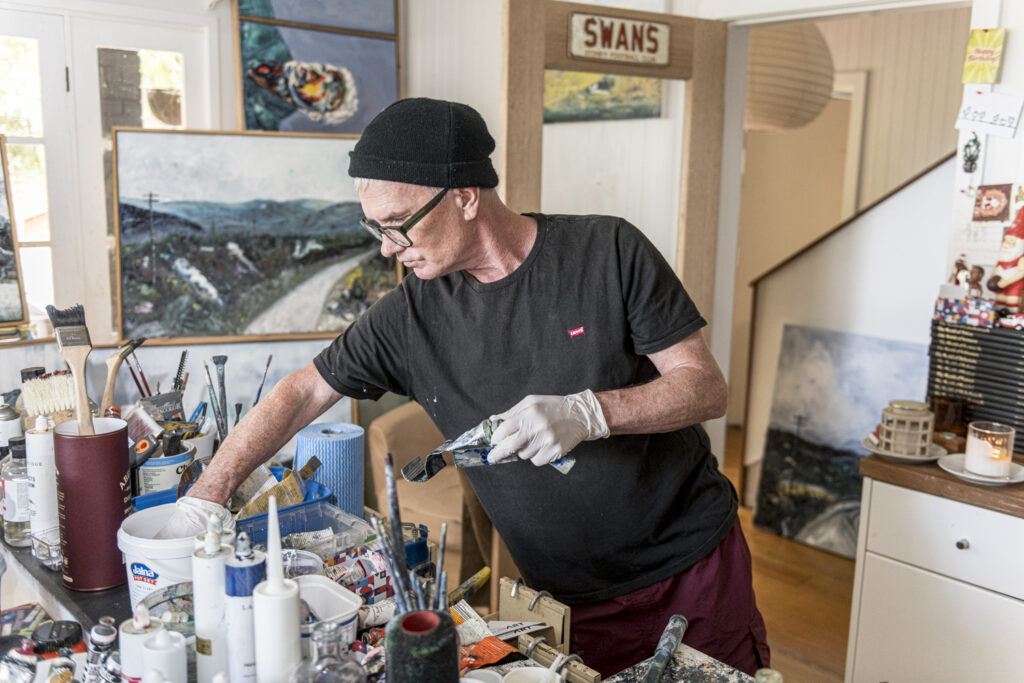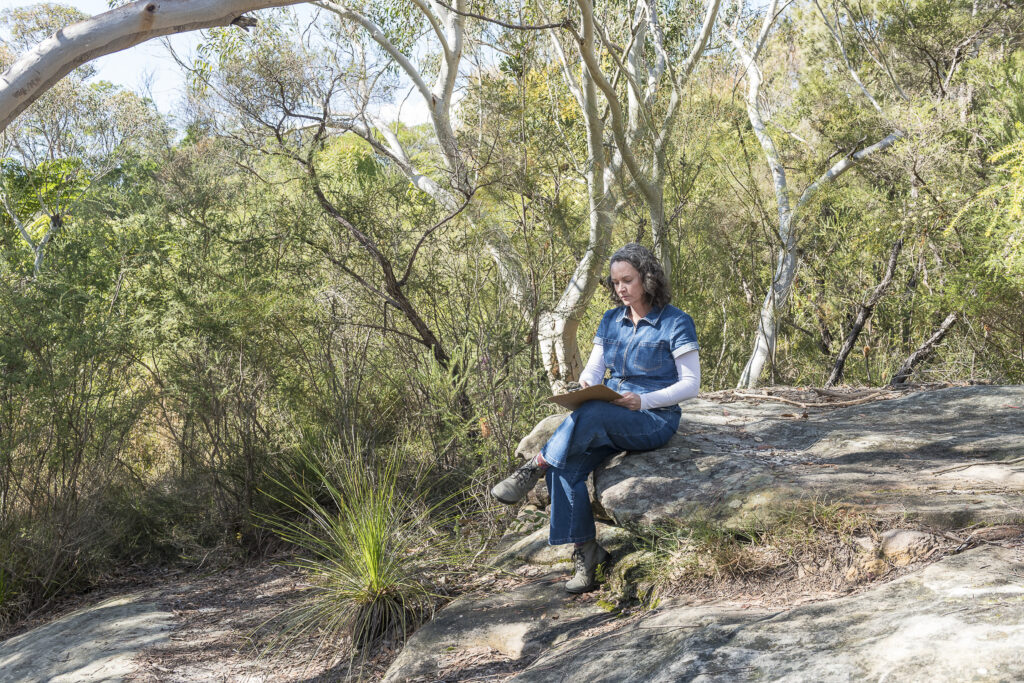Marlie Draught Horse Stud
Words: Michael Sharp
Photography: Ashley Mackevicius
As a young boy, Aleks Berzins was mesmerised watching his maternal grandfather use horses to pull a plough through the earth on his Southern Highlands farm.
“When you see a team of eight horses ploughing a paddock – eight individual horses working together with all that power – there was something about it that hooked me,” Aleks explains. “The horses love learning. They are calm and they have a purpose.”
Berzins’ grandfather was Sid Samuel who, with his wife Pat, established Marlie Draught Horse Stud in Putty in 1973. They were foundation members of the Australian Draught Horse Stud Book Society. The name Marlie combined the names of their two children – Mark and Julie.
The Australian Draught Horse was bred to suit Australia’s harsh climate and conditions, as well as having a quiet temperament. Their breeding was influenced by the major draught horse breeds – Percherons, Shires, Belgians, Suffolk Punch and Clydesdales – and they were used for agricultural work, including forestry and transportation.
In 1983, Sid and Pat relocated their stud to Exeter in the Southern Highlands.




Aleks attended primary school in Exeter and then Moss Vale, and visited his grandparents’ property whenever he was allowed.
“Sid grew up with horses and his family used horse-drawn lorries and wagons in their haulage and scrap metal collection business, based in Flood Street, Leichardt,” says Aleks. “They also used to help muster cattle down Parramatta Road to Homebush sale yards.”
When horses became obsolete, in the business sense, Sid said he was done with horses.
“But a few years later he bought a farm in Putty and it just happened that the bloke next door was a draught horse farmer and somehow got wind of the fact that Sid had a fair bit of horse experience. Sid came home one day and found a pair of grey horses in the yards. Owen, the neighbour, said: ‘You can break them in for me, Sid.’ And that’s how he got hooked back into working with horses again.”
The properties in Putty were small but in those days farmers were allowed to graze their cattle in Wollemi National Park.
“They would muster cattle on horseback through the national park to the sale yards in Singleton. My grandfather had the best memories of that time. He was living the dream.”
When cattle grazing was banned from Wollemi National Park, “farmers could no longer make a living just off the size of their properties so they started leaving and the whole community changed.”
Aleks’ grandmother suggested they look for a new property near Bundanoon, where she used to go on holidays as a child, and Sid and Pat moved Marlie Draught Horse Stud to the current Exeter site in 1983.


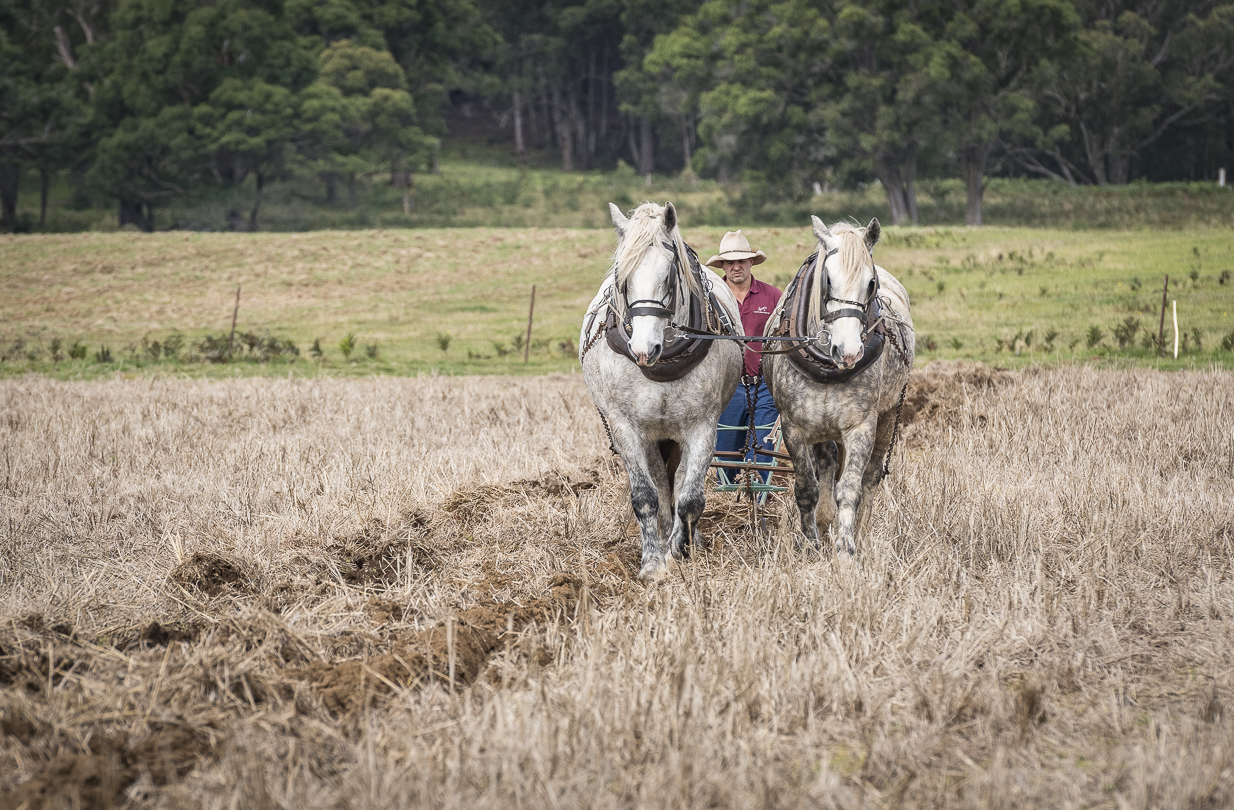

Teams of Eight
Berzins’ love of eight-horse plough teams only strengthened during his high school years, when he was a champion rower.
He was a member of The King’s School First Eight that won the GPS Head of the River in 2006 and 2007, and he focused on rowing immediately after school, training at the Australian Institute of Sport and representing Australia at the World Junior Championships in China. Berzins’ coxed four was Australia’s best performing crew at that competition.
Despite the demands of elite rowing training, Aleks would visit and stay with his grandfather as often as possible. He was offered a rowing scholarship by both Princeton and Harvard universities but couldn’t bear the thought of not spending time with his grandfather.
“My pop was my best friend,” he explains. “It was more than just a grandfather-grandson relationship. He was the bees’ knees and my best mate – and he was best man at our wedding.”
Aleks and Karina
When Aleks met Karina, he invited her to his grandparents’ property as soon as possible.
“We had just met and he said let’s have a trip to the farm,” Karina recalls. “I remember getting here and thinking: ‘No one knows where I am, no one knows who Aleks is and the property backs on to the State Forest – this could be dangerous!’”
Karina grew up near Wollongong, was a keen surfer, and studied commerce and science at university.
The couple bought a property in Marulan a decade ago, when they were both still based in Sydney, however they didn’t spend much time there.
“It used to bug Karina, because we’d bought our first house but I refused to stay in it when we came down because I wanted to stay with Pop and work horses,” Aleks says with a grin.
Soon afterwards, Sid started having health problems and asked Aleks if he would be interested in continuing the tradition of breeding and working draught horses. After thinking it over for about a year, Aleks and Karina decided to take the plunge.
Aleks had been working for a plumber since he finished school and when he moved out of Sydney he started his own business, Exeter Plumbing, while Karina found work with Holcim, which operates a quarry in Marulan.
Aleks loved the move south for many reasons. Karina discovered he would eat the breakfast she cooked for him and then he would visit his grandmother next door and enjoy a second cooked breakfast.
On the other hand, drought hit the area just as they moved in.
“Any money we could get our hands on was spent buying hay to keep the horses alive,” Aleks recalls. “I would finish work and then get into a 1986 truck with no air conditioning on Friday night and drive 13 or 14 hours to Victoria to buy hay. I would drive back the next day and unload the hay and then I’d go to work for the week and do the same the next weekend.”





Labour of Love
Breeding and maintaining 50 draught horses, and preserving traditional ploughing practices, is expensive.
Asked if it is a labour of love, Karina describes it as “a money pit”.
But the couple clearly love what they do.
“It’s such an instant society we live in,” Karina says. “Everyone wants everything done now. Stepping back with the slower pace of the horses is so therapeutic. It helps you switch off.”
For Aleks, it also provides a window into history.
“I’ll see an old plough or harvester that might be 100 years old and, because I met so many people from my grandfather’s era who would talk about getting that machine off the train when it was new and how it changed their farming operation, I can see it when it was new and I can appreciate how it was life-changing for them.”
The Berzins own hundreds of horse-drawn machines, including a 10-tonne Bennett Wagon that was built in 1913 by renowned craftsman James Bennett. Each Bennett Wagon had its own name painted on the side, and the one owned by the Berzins is named All The Go.
“The craftsmanship, for something that was really just a truck, is amazing,” Aleks says. “They were the Rolls Royce of their day and they made sure they did a 10 out of 10 job. I love the beauty of forgotten trades.”
In the future, Aleks and Karina dream of building a living museum on their property to showcase their comprehensive collection of horse-drawn farm machinery and allow visitors to watch their horses plough their paddocks.
Turning Point
Aleks participates in the arcane world of single furrow ploughing – indeed he won last year’s Golden Plough, the most prestigious competition in Australia – but for many years he was happy to stay at home rather than go on the road to show off his horses and skills at country shows. This was partly because of the significant costs involved, including spending time away from his plumbing business.
Things changed in 2022, however, when he was invited to drive eight of his draught horses for 14 kilometres down Parramatta Road to Sydney Olympic Park as part of a parade to celebrate the Sydney Royal Easter Show’s 200th anniversary.
Aleks also joined up with two other stud owners to create a 20-horse team that pulled a wool wagon around the main stadium.
“It turned into a small business from there,” Aleks says. “We started saying ‘yes’ to more shows and demonstrating ploughing and cutting chaff with horses – and that led to more invitations.”
The demand for Marlie Stud’s draught horses is growing because, sadly, many of those who had expertise in horse-drawn farm work have died or are now too old to demonstrate their skills. They are about to visit several regional shows in Queensland.
“People just love seeing 11 horses hooked up to a wagon, they find it mesmerising,” Aleks says.
“And it’s great hearing all the stories,” adds Karina. “People come and tell us what they used to do or what their grandfather did – they love talking to you and reminiscing.”



A Family Operation
Aleks and Karina have extremely busy lives, juggling Exeter Plumbing and Marlie Draught Horse Stud while raising their three daughters, aged between five and ten. The stud is very much a family operation, with the girls already heavily involved.
“The kids finish school and head straight to the yards to feed horses and check water,” Karina says. “And they fix fences and do other jobs on weekends.”
“We are lucky because we are here together as a family and we love doing what we are doing,” adds Aleks.
The Berzins would save money by not travelling with their horses and machinery to regional shows, but that’s not what it’s about.
Last year, they participated in a reenactment of Cobb & Co’s final coach run from Surat to Yuleba in Queensland, sharing the journey with families who operate camel and bullock teams.
“We made bugger all out of it,” says Aleks, “but as an experience for the family, spending a week and a bit on the road in Queensland with our team of horses and going down trails I had never been down – you can’t put a price on that.”
For more information visit: marliedraughthorsestud.com


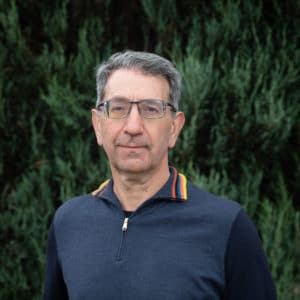
Michael Sharp
Michael worked at Michael Reid Southern Highlands from when it opened in March 2022 until July 2024. He has previously worked as a lawyer, journalist and senior practitioner in Australian corporate affairs.
- xxi Pecora Dairy June 2024
- xxx In Conversation: Evan Shipard March 2026
- XXIX David King December 2025
- XXVIII Nicola Woodcock August 2025
- xxvii Marlie Draught Horse Stud May 2025
- xxvi India Mark February 2025
- xxv Mussett Holdings December 2024
- xxiv Louise Frith October 2024
- xxiii Dirty Jane August 2024
- xxii Melanie Waugh July 2024
- xx Emily Gordon May 2024
- xix Steve Hogwood March 2024
- xviii Julz Beresford February 2024
- xvii Snake Creek Cattle Company November 2023
- xvi Ben Waters September 2023
- xv The Reid Brothers August 2023
- xiv Elizabeth Beaumont July 2023
- xiii The Charlotte Project June 2023
- xii Buddhism in Bundanoon May 2023
- xi Honey Thief April 2023
- x David Ball February 2023
- ix Kate Vella January 2023
- viii The Truffle Couple December 2022
- vii Wombat Man November 2022
- vi Storybook Alpacas September 2022
- v Tamara Dean August 2022
- iv John Sharp July 2022
- iii Amanda Mackevicius June 2022
- ii Denise Faulkner May 2022
- i Joadja Distillery March 2022










